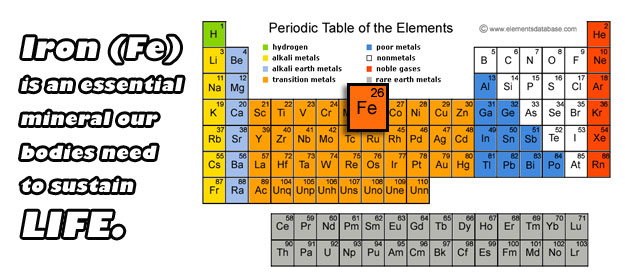All About Iron
Iron (Fe) is an essential mineral our bodies need to sustain life.
Recommended daily allowance is currently 18 mg per day for the average individual. Requirements can vary depending on gender, age, and absorption. American Society for Metabolic and Bariatric Surgery (ASMBS) currently recommends double the daily allowance for patients who have undergone metabolic surgery (gastric bypass, gastric sleeve, duodenal switch).
If a patient is low in iron, it can present in a variety of ways. Mild deficiency can be completely asymptomatic and only noticeable on a patient’s blood work. More significant deficiency can lead to low blood count (anemia). Anemia can produce symptoms of fatigue, pale skin, a fast or irregular heartbeat, shortness of breath, chest pain, dizziness, cognitive problems, cold hands and feet, headache.
Bariatric surgery patients need to replenish their iron stores by either taking more of an iron supplement and/or taking an iron supplement that is formulated to be more readily absorbed. Make sure you read the label of your multivitamin or supplement to ensure you are getting the right amount.
Iron supplement Formulations:
| Type | Absorption Factor | Price | GI Side Effects | Quality |
| Iron Sulfate | 20% | Cheap | Significant | Moderate |
| Iron Gluconate | 12% | Cheap | Moderate | Worst |
| Iron fumarate | 33% | Moderate | Moderate | Better |
| Elemental Iron | 100% | Expensive | Least Likely | Best |
In addition to the above, adding vitamin C to an iron supplement has shown to increase absorption. Taking iron with coffee, tea, antacids, and some minerals like calcium can decrease absorption.
Remember, a healthy diet in unprocessed foods can provide the majority of one’s iron requirements. Meats generally have large amounts of iron. Aloha Surgery carries several types of Iron supplements. For more information call our office (808) 521-1300.

